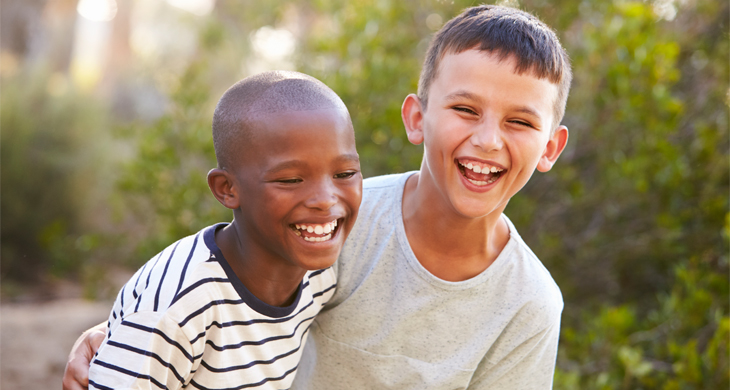All parents want their kids to be happy and many assume that popularity is a hallmark of happiness; and, often, popular kids are happy kids. Parents whose children aren’t necessarily “popular” may have a nagging worry that their kids are missing out on something, that the fact they don’t have a large group of friends is an impairment of sorts. Actually, says a recent study, kids who have a small circle of close friends may grow up to be happier than popular kids.
School Popularity May Affect Future Happiness
Researchers at the University of Virginia (UVA) began tracking 169 high-schoolers at age 15 and followed them for a decade. They concluded that students who prioritized forging close friendships over being seen as “popular” were happier by age 25. Interestingly, anxiety, depression, and social anxiety were more prevalent in the “popular” high school students than in the high school students with fewer, deeper friendships. The negative effects of chasing popularity and being popular in school didn’t manifest during high school, but during early adulthood, the researchers concluded.
Developing Deep Friendships Takes Work
Hard work pays off, and that’s good news for students who spend the time to forge meaningful friendships with a select few friends rather than focusing their efforts on being well-liked on a superficial level, the researchers concluded. As adults with jobs and responsibilities, it’s more difficult to build new friendships. High-schoolers who mastered the skills needed to develop meaningful relationships were better equipped to use those skills to cultivate close connections later in life.
Earlier Study: Coolness Doesn’t Translate to Success
A predecessor to UVA’s 2017 high-school popularity study was a 2014 UVA study tracking “cool” middle-schoolers. For that study, researchers followed 184 kids from age 13 through age 23. The cool kids, they concluded, were much more likely to abuse drugs and alcohol, have trouble with the law, and work in more menial types of jobs than “quiet, good” middle-schoolers.
Reasons for Popularity Makes a Difference
Does this research suggest that popularity and/or “coolness” is inherently bad? No. There are different reasons why kids find themselves in the “it crowd.” Some kids are popular for superficial reasons—for what they have or for how they look, or because they live on the edge, thwart authority, or carefully cultivate their every statement and move with the end goal of being popular.
Other kids are popular because they possess desirable personal attributes, such as being kind, empathetic, funny, or uniquely quirky. Some kids have warm or charismatic personalities that others are naturally drawn too. That doesn’t mean these popular kids are unable to form deep friendships with a select handful of close friends. Some kids are fortunate to be popular and have the desire and ability to develop supportive, sincere friendships.
The bottom line? When considering friendships as a gauge of personal fulfillment and happiness, quality trumps quantity! Those students who are never picked first, rarely make the team or win the election, and aren’t always invited to the parties should be just fine in the long run, as long as they have even one friend they can confide in and rely on. Kids (and their parents) who place too much emphasis on fitting in and being well-liked are doing themselves a disservice. Wasting time and effort vying to be well-liked by the masses may be counterproductive in the long run.





























































































